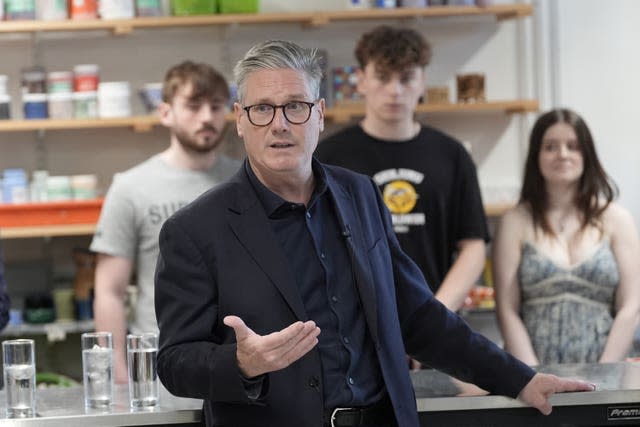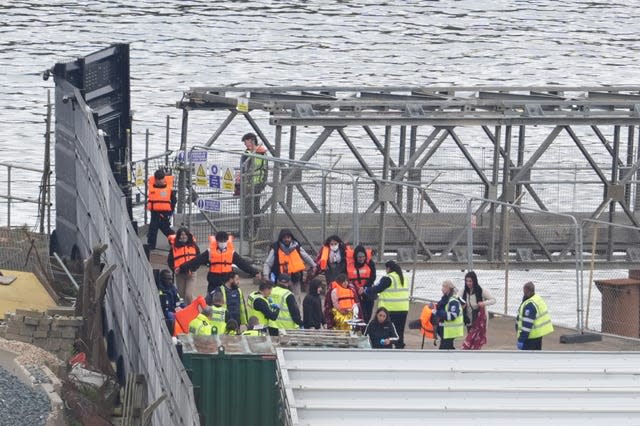Starmer rejects Sunak’s claim he would ‘sit down with ayatollahs’ over migrants
Sir Keir Starmer has dismissed Rishi Sunak’s claim that he would “sit down with the ayatollahs” to get a migrant returns agreement as the Labour leader attacked the growing asylum backlog under the Prime Minister’s Government.
Sir Keir said a Labour government would work with “whoever is in power in France” on tackling migrant Channel crossings when asked about concerns that a victory for Marine Le Pen’s party in France’s upcoming parliamentary election could make co-operation more difficult.
In Wednesday’s final head-to-head debate between Sir Keir and Mr Sunak, the Prime Minister accused his rival of “taking people for fools” by suggesting he could strike returns agreements with other countries.
Saying migrants were coming from Iran, Syria and Afghanistan, Mr Sunak asked: “Will you sit down with the ayatollahs? Are you going to try to do a deal with the Taliban? It’s completely nonsensical.”
Sir Keir hit back that the Prime Minister does not have a solution to the issue.
During a campaign visit to Staffordshire on Thursday, the Labour leader told reporters: “There are some things that are not sensible for the asylum policy, and that was a throwaway comment from the Prime Minister – who himself had no answer to that question.”
Sir Keir said the problem that needs addressing is that “tens of thousands of people who’ve arrived illegally in this country are not being processed” and are “being housed at the moment in hotels” at huge cost to the taxpayer.
“Rishi Sunak’s got no answer to what he’s going to do with that cohort. Once they’re here, they’re here for life because they’re not being processed. They can’t be returned because they haven’t been processed.

“And even if the Rwanda scheme is up and running with a few hundred flights every year, it will take literally hundreds of years to remove people to Rwanda.”
He continued: “Leaving those claims unprocessed is not the answer to this.
“Of course there will be countries, Afghanistan is an example, where you can’t return people. They’re not going to be returned to Afghanistan. But what we can’t do is stay with this absurd situation where there’s just a growing and growing number.”
Reducing both irregular and visa-controlled legal migration, and tackling the asylum backlog, are key election battlegrounds.
More than 50,000 migrants have arrived in the UK after crossing the Channel since Mr Sunak entered No 10, including over 13,000 so far in 2024 – a record for the first six months of a calendar year.
Labour has pledged in its manifesto to axe the stalled multimillion-pound plan to send migrants to Rwanda and use the money to pay for a new security border command.

If elected, Labour would launch the unit with “hundreds of new specialist investigators”, vowing to “use counter-terror powers to smash criminal boat gangs” in a bid to curb Channel crossings.
The party would also seek a “new security agreement with the EU to ensure access to real-time intelligence” so police can work with European counterparts.
Sir Keir was asked whether he was concerned that it would be harder to get closer co-operation with France if the National Rally party of Ms Le Pen wins the election there.
He said: “We will obviously work with whoever’s in power in France or any other country. I don’t think that’s an inhibitor for a better set of working relations.
“I do think with our border security command – which will be cross-border, linking not just prosecutors and police, but obviously security and intelligence agencies – that is a game changer in what we can do.
“I’ve long argued we should have a better security pact with the EU on this issue. That would give us something really valuable that we don’t have now, which is that on joint operations the UK could lead. Now that is something that we lost.”

 Yahoo News
Yahoo News 
